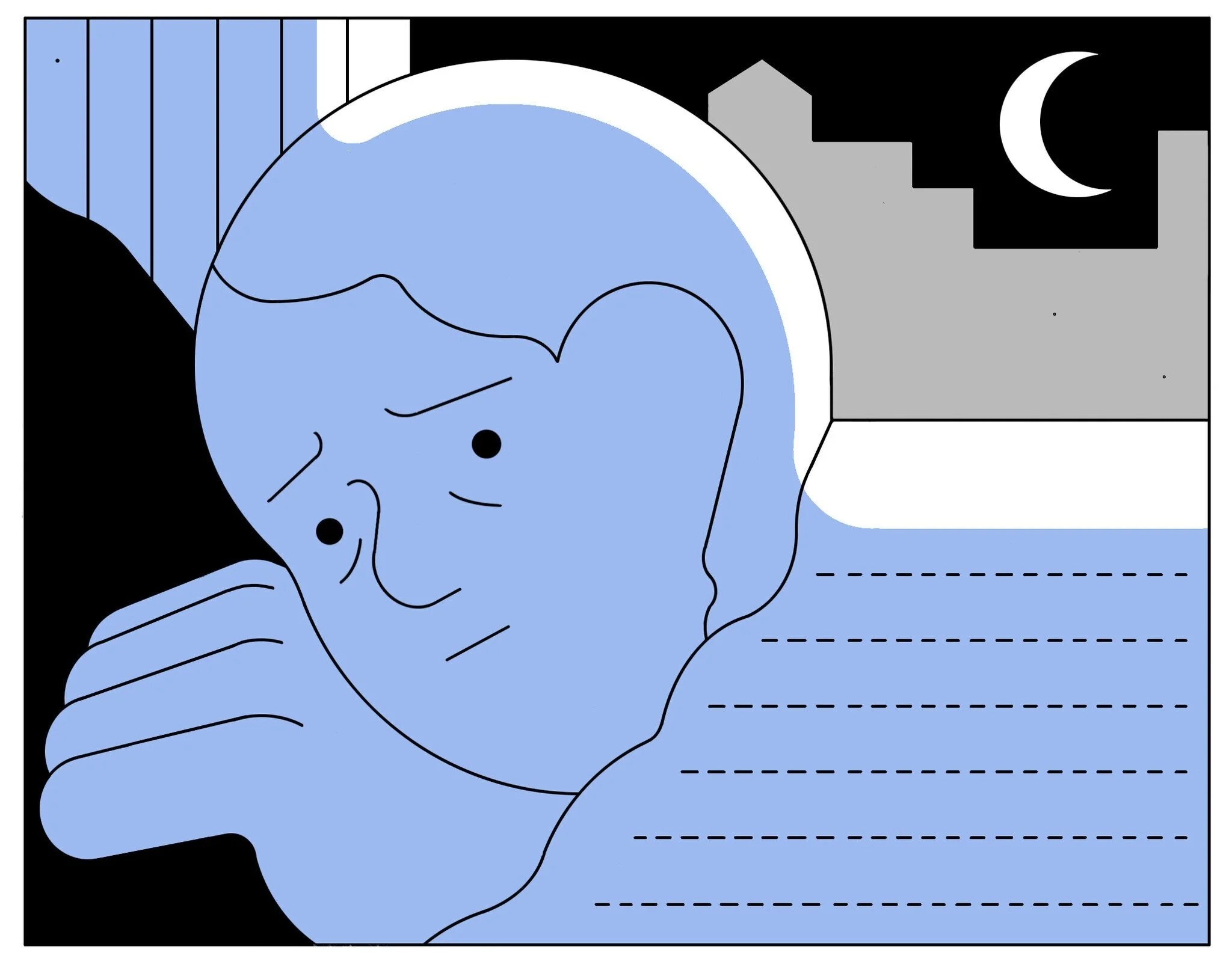Plato once compared the mind to a cage of fluttering birds, needing moments of stillness to settle. But for those of us with anxiety, those moments of stillness—especially at bedtime—can feel anything but calming.
Why does anxiety often worsen at night, and how can we quiet our minds to reclaim peaceful sleep? Let’s explore the science behind nighttime anxiety and simple strategies to break the cycle.
Why Anxiety Peaks at Bedtime
For many, night time is the first moment of the day when distractions fade, leaving us alone with our thoughts and feelings. While day time busyness can keep anxiety at bay, the stillness of night amplifies the awareness of our suppressed worries.
Here’s how the cycle unfolds:
Silence Exposes Suppressed Thoughts: Without distractions, difficult emotions and thoughts surface to be felt and processed
Perception of Threat: Anxiety tells us something bad could happen. This activates the body’s fight-or-flight response
Physical Symptoms: Stress hormones kick in, causing a racing heart, tense muscles, or nausea
Fear of Sleeplessness: Worrying about not sleeping adds another layer of anxiety, perpetuating the cycle
It’s like avoiding an upset partner all day, only to have them demand attention right when you’re trying to rest.
Breaking the Cycle of Night Time Anxiety
The key to peaceful sleep lies in making space for your anxiety during the day instead of suppressing it until bedtime. Here are some effective ways to do just that, and calm your body and mind
1. Create Daytime Stillness with the R.A.I.N Technique
Instead of running from anxious thoughts, make time during the day to face them with compassion. Psychologist Tara Brach’s R.A.I.N technique can help:
R: Recognise what you’re feeling without judgment
A: Allow the emotion to be there without trying to fix it
I: Investigate with curiosity—What’s behind this feeling?
N: Nurture yourself with compassion
The above practice only takes 11 minutes. By carving out respectful moments to process your emotions, bit by bit they lose their intensity and are less likely to disrupt your sleep
2. Practice Progressive Muscle Relaxation
Progressive muscle relaxation (PMR) is a powerful technique to relax your body and prepare for sleep. Here’s how it works:
Start at your head, tensing and relaxing each muscle group
Move sequentially through your body down to your toes
Focus on the sensation of releasing tension
Guided PMR videos on YouTube, like Progressive Muscle Relaxation for Anxiety and Stress (with Music), can make this even easier to follow
3. Work with a Psychologist
If anxious thoughts persist, consider speaking with a psychologist or psychotherapist. Having a dedicated supportive space to process these feelings can be transformative. Especially if holding space for them alone feels too overwhelming to start
Quick Tips for Nighttime Calm
Set a Sleep Routine: Keep consistent bedtime habits to signal your body it’s time to wind down
Journal Your Worries: Write down anxious thoughts during the day to “offload” them before bed
Limit Stimulants: Avoid caffeine altogether and heavy meals in the evening, as they disrupt relaxation
Reduce Screen Time: Blue light from screens trick your brain into staying awake. Light is a powerful sleep/wake regulator for the body and brain (so you see now why our phones and streaming services mess things up for us so badly!)
Reclaim Your Nights
Night time anxiety feels overwhelming, but it’s not insurmountable. By holding some space for your emotions during the day, calming your body with techniques like PMR, and seeking support when needed, you can break the cycle of sleeplessness
Remember, it’s not about eliminating anxiety altogether—it’s about learning to respectfully process our ‘stuff’ (preferably during the day) and supporting the body with science-based tools to ground and centre your nervous system
Take it one step at a time and soon restful nights will be in reach




